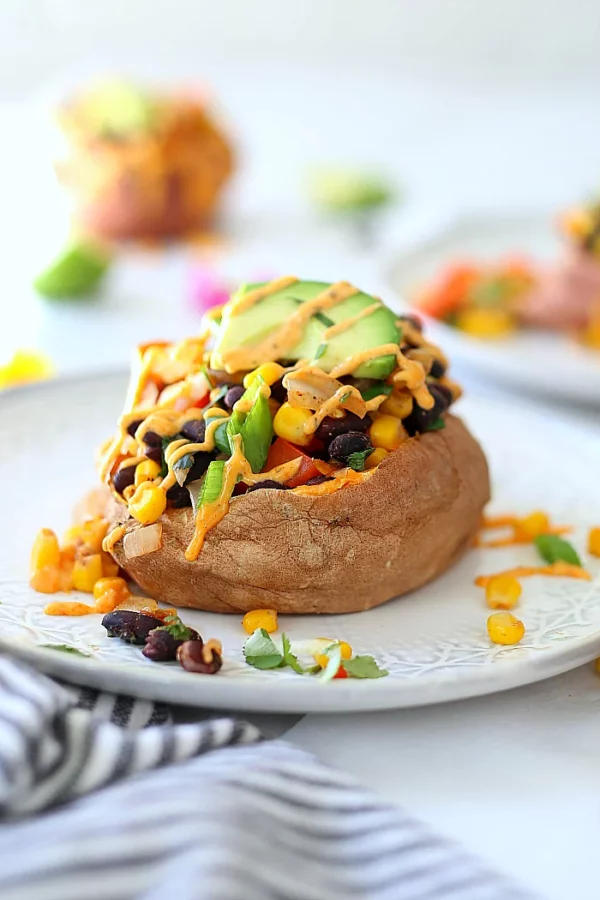
Be the Change You Wish to See in Your Community

As Benjamin Franklin once famously said: Some people die at 25 and aren’t buried until 75.
“What?” you may ask, scratching your head.
Don’t worry; Ben wasn’t talking about actual death. The first death Franklin refers to is the death of learning, change and growth.
While we’re always growing older and physically changing, an individual’s emotional and intellectual development can stop at any time. (Just check the comments section on a YouTube video for proof.) Everyone is at risk of ceasing to learn and grow because effort is required to sustain growth, and stopping is the easiest thing in the world.
By the time we’re 25, most of us have already graduated college after spending about 80 percent of our lives in education. Once we earn those diplomas, no one can compel us to continue learning. That’s why too many of us stop. We assume we’ve fulfilled our obligations to ourselves. We’ve met our quota for the knowledge necessary to live out the rest of our lives.
However, when we cease to explore, challenge and improve ourselves, we stagnate. Life becomes a tedious, static and unfulfilling drudge to the long dirt nap.
So, what are the first few steps to ensuring this won’t happen to us?
1. Challenge your mind with new information.
Being a better person to others starts with being a better person to yourself. This means protecting your mind from the stagnancy and atrophy that comes from “knowing enough.”
Accept the fact you’ll never finish learning about what makes you (or anyone else) tick.
It’s vital you start off in this frame of mind because it keeps you more humble, open and creative. You need these qualities to better help yourself and others.
The wonderful truth about being a better person is there is no end point. All you have to do to get started is identify something new (but relevant) to your goals and explore it. Spend your lunch break reading a good book.
Watch videos of smart people being smart. There are tons of little things you can do right now to feed your mind and make yourself better than you were a minute ago.
You may feel daunted by this task. That’s okay.
A perpetual quest for knowledge and wisdom sounds exhausting. But this work is guaranteed to make your life easier and more fulfilling, all the way through to the end.
2. Register as an organ donor.
Chances are, you’ve never experienced a health condition requiring an organ transplant. If this is the case, consider yourself lucky.
There are currently over 100,000 people in the United States whose very survival is dependent on being able to receive such an operation. But because of the growing scarcity of registered organ donors, hopeful recipients are placed on a waiting list. Some of them get lucky. Too many of them don’t. An average of 21 people on the waiting list die every day.
Imagine what immense gratitude a recipient and his or her loved ones would feel. It would set the stage for a more joyful, meaningful life. Who knows what he or she might accomplish with it?
There really is no good reason not to register yourself as an organ donor, given the incredible impact it has on those in need.
Not only does being an organ donor save lives — up to eight per donor, in fact — but it also has the power to transform those lucky recipients into grateful and happy people.
3. Be more friendly to strangers.
This is one of the most simple and satisfying ways to be a better person. Simply talk and be friendly with people you don’t know.
Are you a shy person? Do you struggle with conversation? No worries.
You don’t have to speak to others if you don’t want to. Just smile at them, wave and see if they return the gesture. The important thing is to acknowledge strangers.
Every person you see on the street has a life as vivid and complex as yours. Everybody has his or her own struggle and pain. A great deal of people suffer because they’re lonely. So, acknowledge them. Engage them in conversation.
Ask them questions, and be an active listener. Be sincere.
Treat every stranger you see with warmth. You never know what kind of pain people hold or what your unexpected kindness could do to alleviate it.
4. Be a volunteer.
An easy way to help those in need is to donate money, food and other necessities. Most of us enjoy an abundance of those things. We can give some away without having to make significant changes to our lifestyles.
A more powerful gesture would be to donate something much more limited, like your time. Putting in time as a volunteer is one of the most selfless and altruistic things you can do. Volunteering also gives you the opportunity to gain experience in a vast array of fields. Animal shelters, public schools, research groups and disaster relief crews all rely on the generosity of volunteer workers.
Luckily, there are a variety of websites designed specifically to help you find local volunteer opportunities that are right for you.
5. Learn to grow from emotional pain.
Start a journal. Record your daily thoughts and feelings to gain a greater understanding of what makes you tick. Our pain is relative to our past experiences, so make sure you remember yours.
Pain is a necessary tool for communicating to ourselves where our resistance lies. It points out to us the traits and qualities we lack, and it presents us with opportunities to grow. That’s why, when life gets really hard, we shouldn’t block out or run from our pain. We must accept and observe it in order to extract the inherent value.
There will always be dark and difficult periods in your life, and resisting them will make them worse.
So, instead of feeling sorry for yourself and asking, “Why me?” ask, “In what way must I grow, so I can prevent this pain from now on?”
You’ll be able to more readily accept both your experiences and those of others.
6. Resist the urge to judge others.
No two people alive are exactly alike in either body or mind. Each one of us is experiencing life in a unique way. Geography, climate, diet, politics and religion are all elements of the environment that shape us. Each one of us reacts differently.
Remember that time you asked a friend if he or she enjoyed your favorite band, book or movie, and you were shocked to hear a no? You were completely blindsided. You replied, “What? But how could you not like something I think is amazing?”
Asking this is like asking, “But how could you not be the exact same person as me?” The same principle works when we’re quick to judge others for their choices, lifestyles or whatever. We expect everyone’s experience to be just like ours. It can’t be, and it shouldn’t be.
7. Recycle and reuse everything you possibly can.
Recycling isn’t just about separating bottles and cans from the rest of your trash. It’s about addressing our capacity to waste valuable resources.
You can reduce the amount you waste right now by eating off real plates, instead of disposable ones. Stop buying paper towels. Use a cloth rag for wiping up spills and general cleaning. Find uses for things others discard, and always donate what you can, instead of throwing it away.
Do you live in a municipality that does not support a recycling program? You can search for facilities nearby that recycle just about anything.
Reduce your community’s environmental impact and start a collection program yourself. Talk to your neighbors, and educate them on the reasons recycling is so important.
8. Conserve energy, water and gasoline.
Our demand for electricity puts an enormous strain on power suppliers. There are many little things you can do to help limit your consumption of energy. Turn the lights off whenever you leave a room. Unplug your electronics and nonessential appliances when not in use. Even when they’re off, they still draw power. Use your AC only when necessary, or program it to shut off at a reasonable temperature. Get more efficient systems installed in your home.
You can limit water just as easily. Quit letting the water run while you brush your teeth. Take quicker showers, and shoot for five minutes or less.
Gasoline is important to cut down on as well. Walk, bike and use public transportation whenever possible.
Buy locally grown food. It cuts down the carbon emissions from shipping over long distances. If a coworker’s house is on your way to work, offer him or her rides. Enjoy having one less car on the road.
Challenge yourself to find more ways of getting by on less. I think you’ll be surprised at how fun and rewarding those limitations can be. You’ll discover you’re much more capable than you thought.
9. Find your passion, and use it for the common good.
What are you passionate about? What really moves you?
Is it music? Dancing? Motivational speaking?
If you’re not sure what makes you happy, try experimenting with different things. Take a class. Find people who are already following their passions, and ask them questions about what they love.
The important thing is to explore and look for a common theme.
When you do find out what that special thing is, follow it and don’t stop. Whatever your passion may be, it will represent your greatest offering to the world.
10. Participate in your local community.
Every town relies on its people to help make it a better place, and yours is no different. Take the opportunity to make a difference, and become an active member of your community. Buy from local shops whenever you can. A sizable portion of your money goes directly to supporting the local economy.
Pick up trash when you see it. Carry a garbage bag and take a walk, cleaning as you go. Take pride in having litter-free sidewalks and streets.
Donate canned goods and toys to schools, so they can be passed on to less fortunate families.
Vote in your local and state elections, and write letters of encouragement when elected officials make good decisions for the community. It’s not something they usually hear, and the appreciation will help them be more motivated and effective at their jobs.
The simple tips on this list won’t take more than a few minutes to improve your life. Just stay as mindful as Benjamin Franklin, and you’ll live a long life as your best self.














































